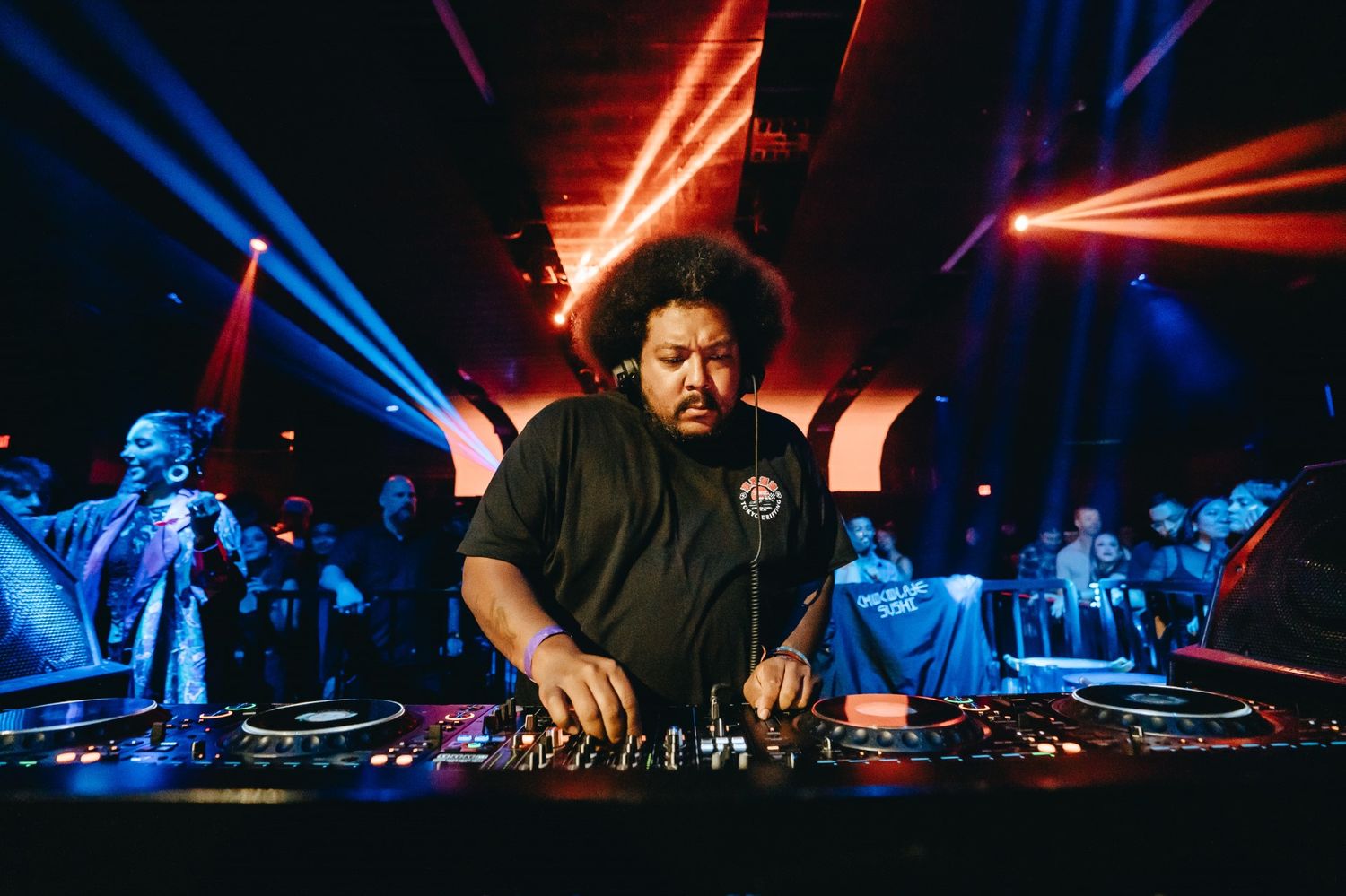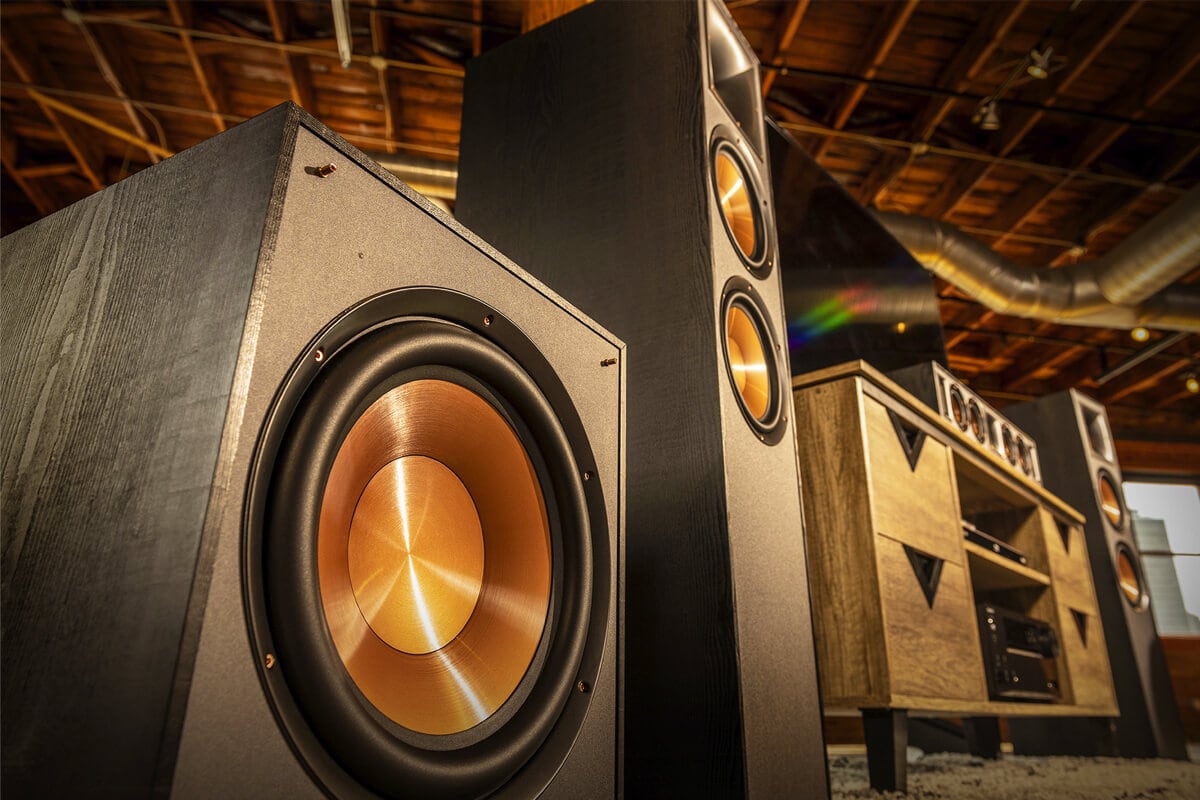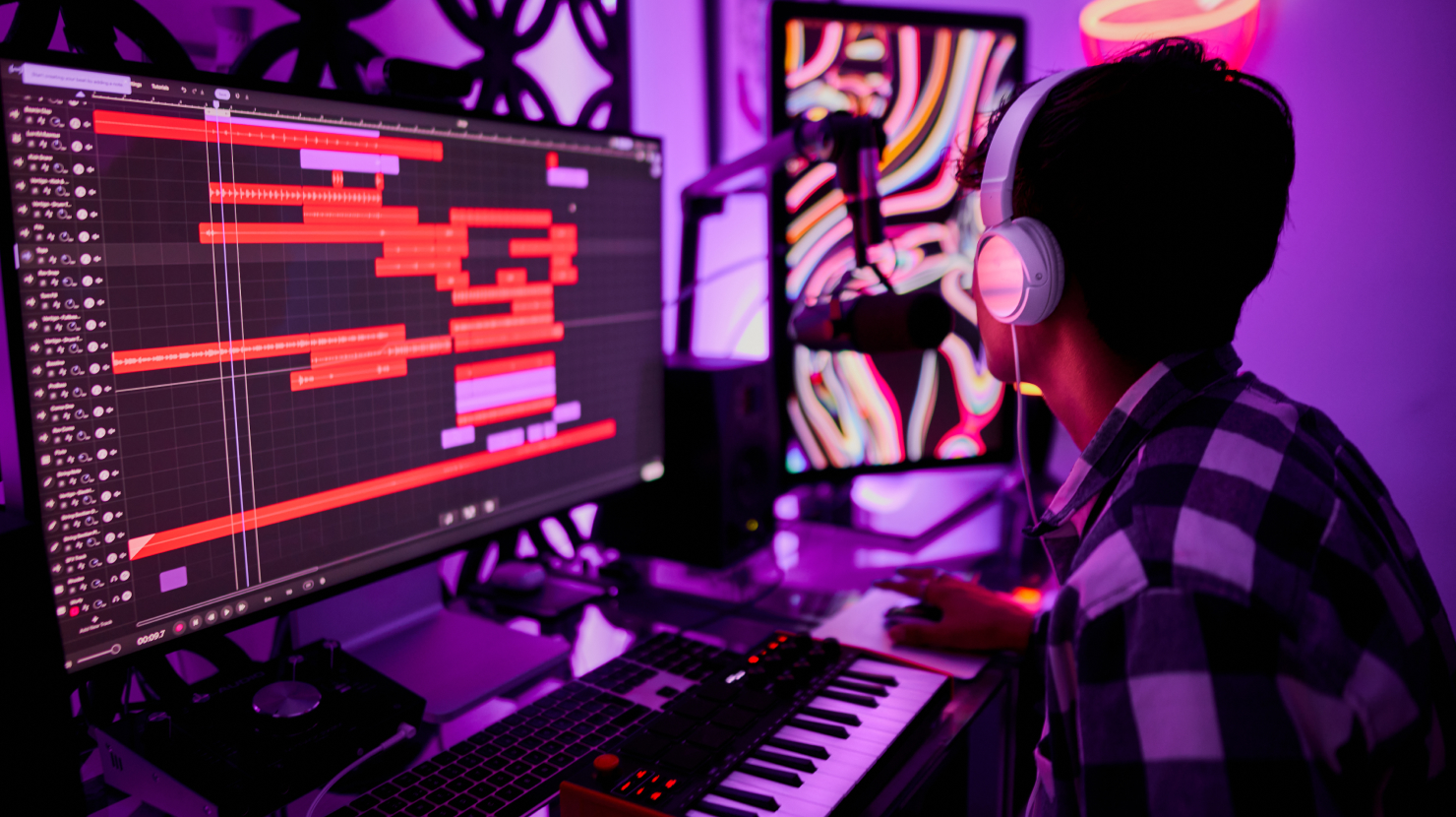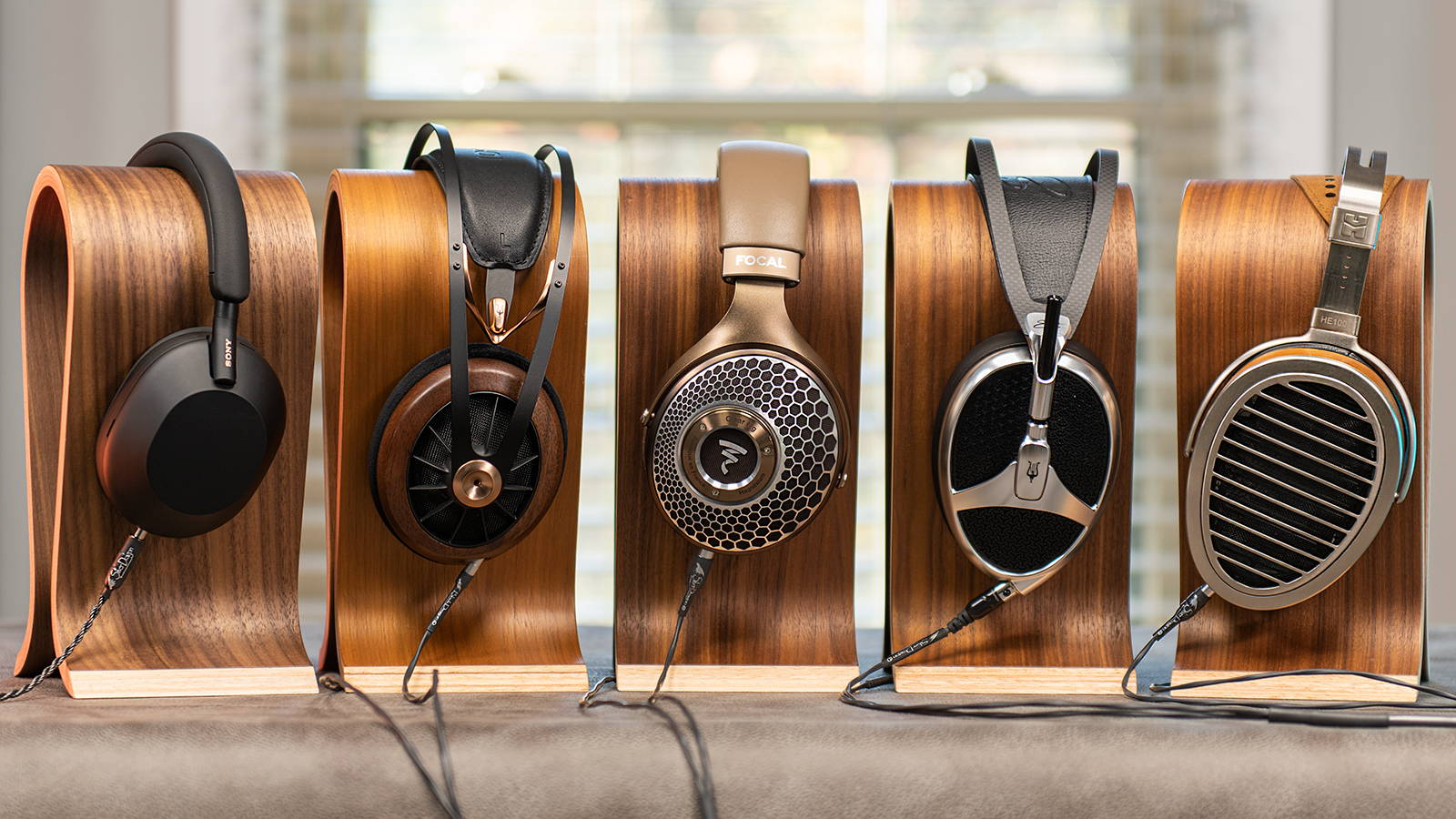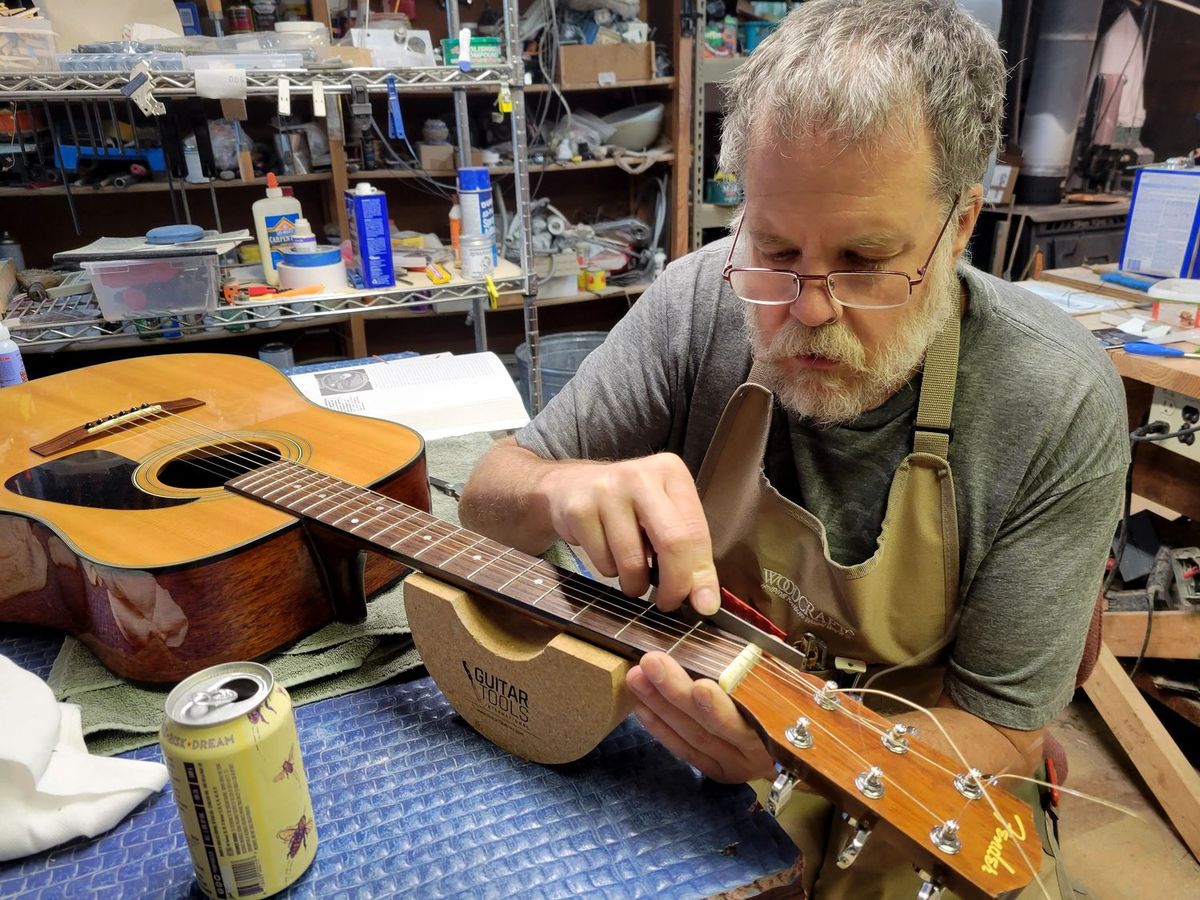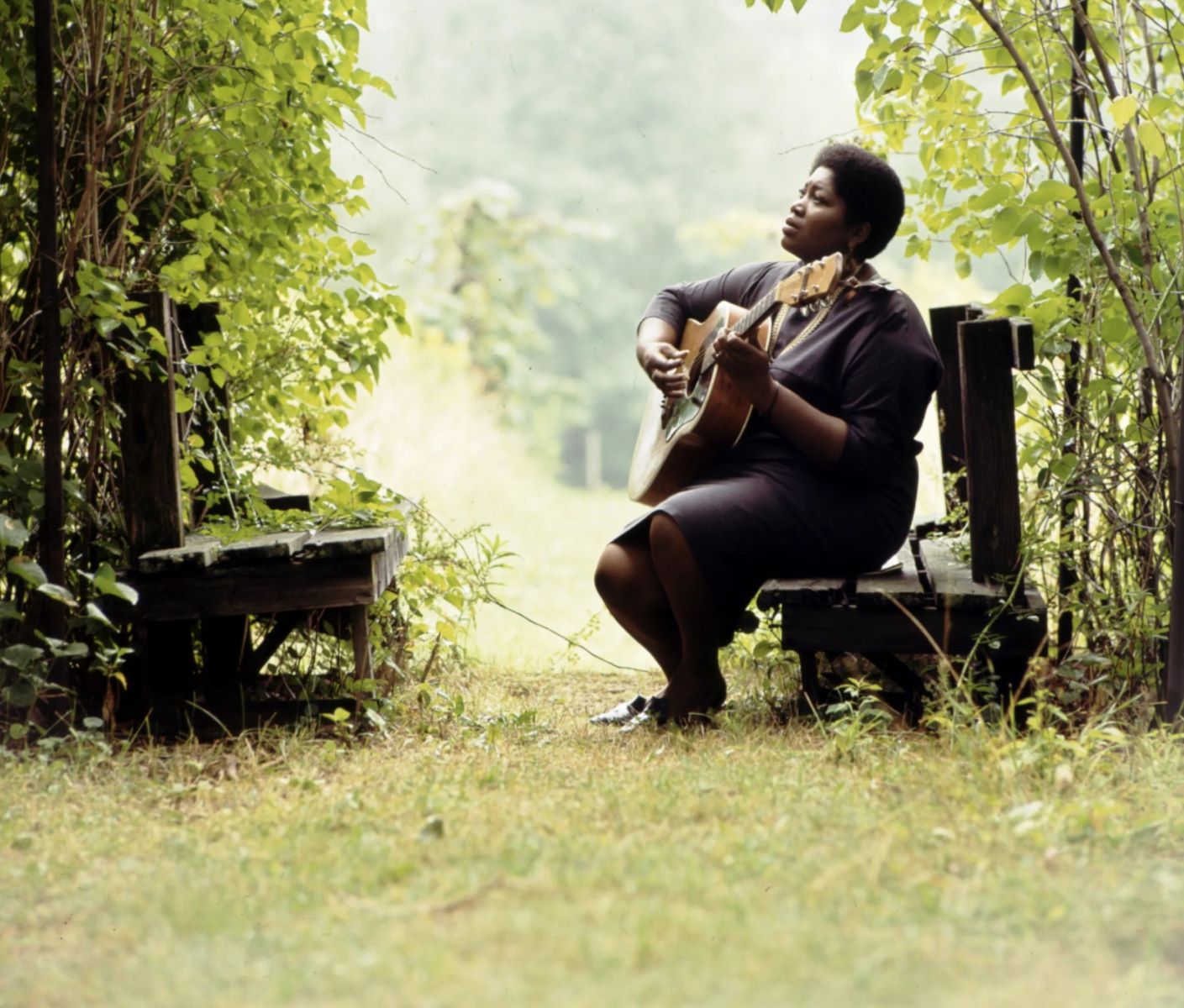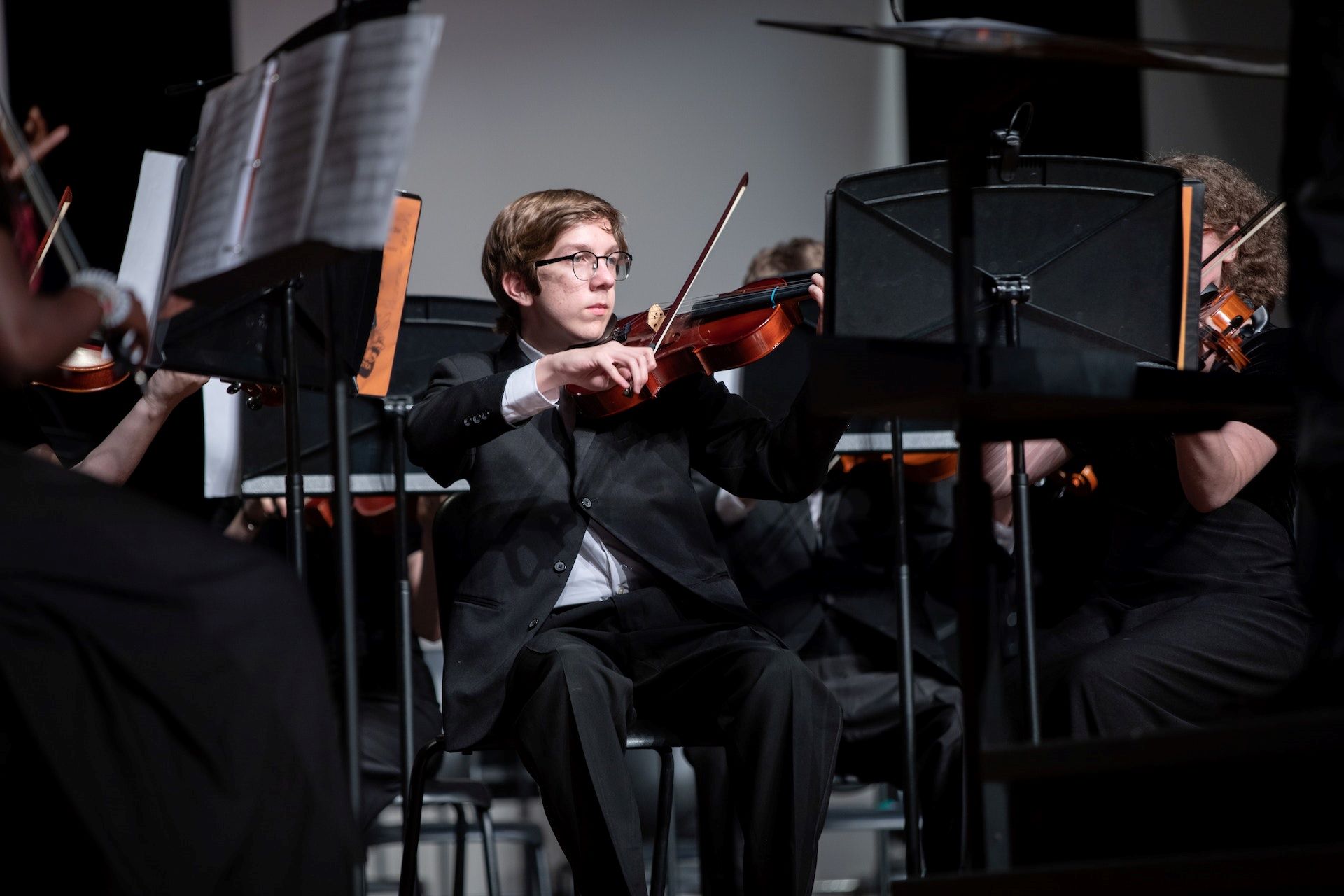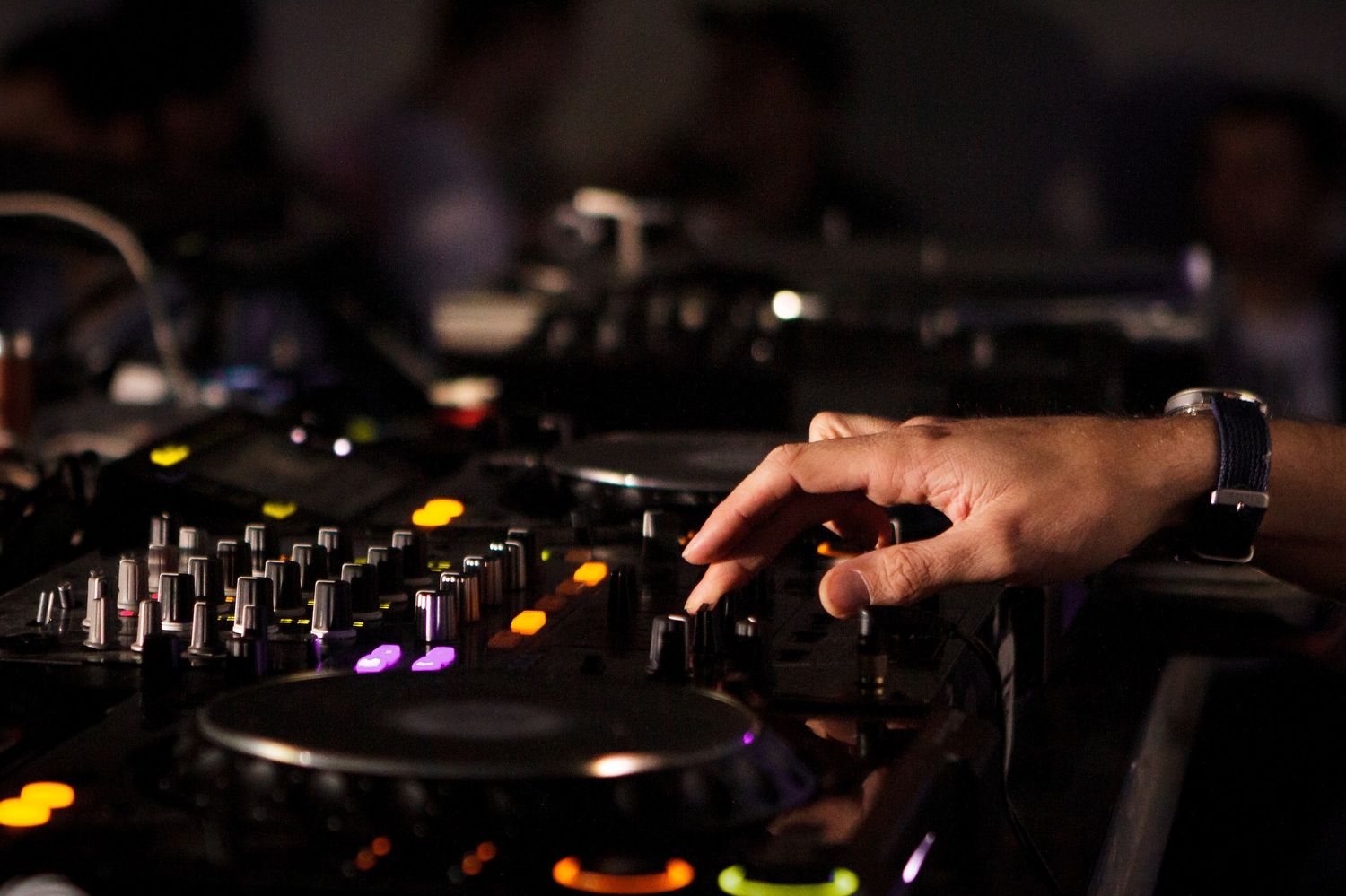Home>Production & Technology>Audiophile>How Do You Become An Audiophile


Audiophile
How Do You Become An Audiophile
Modified: January 22, 2024
Discover the secrets to becoming an audiophile and immerse yourself in the world of high-quality sound. Explore the essential steps and tips to enhance your audio experience.
(Many of the links in this article redirect to a specific reviewed product. Your purchase of these products through affiliate links helps to generate commission for AudioLover.com, at no extra cost. Learn more)
Table of Contents
Introduction
Are you someone who finds solace in the crisp sound of a vinyl record or the immersive experience of a high-fidelity audio system? If so, then you might already be on your way to becoming an audiophile.
An audiophile is someone who has a deep passion for and appreciation of high-quality audio reproduction. They strive to create a listening experience that is as close to the original recording as possible, taking meticulous care in selecting audio equipment and optimizing their listening environment.
In this article, we will explore the world of audiophiles and provide insights into how you can cultivate your own audiophile journey. From building your audio system to understanding different audio formats, we will cover various aspects of the audiophile lifestyle and provide practical tips to help you elevate your listening experience.
Whether you are just beginning your audiophile journey or have been immersed in the world of high-end audio for years, this article will serve as a roadmap to enhance your knowledge and appreciation of the audiophile realm.
Understanding Audiophiles
To truly appreciate and understand audiophiles, it is important to delve into the essence of their passion and the philosophy that underpins it. At the core, audiophiles are dedicated to achieving the highest possible audio quality in their listening experience. They go beyond simply listening to music; they want to feel every nuance and detail, as if they were in the recording studio.
At the heart of audiophilia is a pursuit of sonic purity. Audiophiles seek out equipment and systems that can faithfully reproduce sound as it was intended, without any distortion or degradation. They value transparency, clarity, and accuracy in audio reproduction, and are willing to invest time and resources to achieve it.
One of the hallmarks of an audiophile is the willingness to spend significant amounts of time researching and comparing different audio components. They carefully evaluate specifications, read reviews, and listen to demos, all in the pursuit of finding the perfect combination of equipment that will bring their music to life in the most faithful way possible.
Another defining characteristic of audiophiles is their appreciation for the listening environment. They understand that the space in which they listen to music can have a significant impact on the sound quality. To optimize their experience, they may invest in acoustic treatments, such as sound diffusers and absorbers, to minimize unwanted reflections and create a more natural listening environment.
Audiophiles also understand the importance of proper positioning and placement of speakers and other audio equipment. They experiment with different speaker placements, toe-in angles, and subwoofer integration to achieve an optimal soundstage and imaging, allowing them to perceive an accurate and lifelike soundstage.
Ultimately, audiophiles view their pursuit of high-quality audio as a lifelong journey. They are constantly learning, experimenting, and refining their systems to extract every ounce of detail and emotion from their music. It is this dedication and passion that sets audiophiles apart and makes their listening experience truly exceptional.
Passion for Music and Sound
A crucial aspect of being an audiophile is the intense passion for music and sound. Audiophiles not only crave the technical and sonic quality of audio, but they also have a deep appreciation for the artistry and emotion that music evokes.
For audiophiles, music is not merely background noise; it is a gateway to an immersive experience. They are captivated by the intricate details, the dynamic range, and the subtle nuances that are often missed by casual listeners. They are constantly seeking out new genres, artists, and albums to broaden their musical horizons and explore different sonic landscapes.
Understanding the importance of the source material, audiophiles prioritize high-quality recordings. They appreciate well-produced albums that showcase the true potential of the music. From meticulously engineered studio recordings to high-resolution audio formats, they are always on the lookout for the best possible versions of their favorite songs.
Audiophiles also appreciate the importance of musical instruments and the role they play in the overall sound reproduction. They revel in the tonal qualities and timbre of various instruments, knowing that the accurate reproduction of these subtleties can transport them closer to the live performance.
Moreover, audiophiles thrive on the emotional connection that music serves as a conduit for. They recognize that music has the power to evoke powerful emotions, whether it be the exhilaration of a soaring guitar solo, the serenity of a delicate piano melody, or the melancholy of a haunting vocal performance. They seek to recreate these emotions in their listening experience, immersing themselves in the music and allowing it to transport them to another world.
A passion for music and sound is what ignites the audiophile’s pursuit of audio excellence. It is this passion that fuels their relentless drive to create the best possible listening experience, where they can fully immerse themselves in the magic of music and indulge in the rich tapestry of sound.
Building Your Audio System
Building an audio system as an audiophile is an exciting and rewarding process. It involves carefully selecting components that work harmoniously together to achieve the best possible sound quality. Here are some key considerations when building your audio system:
1. Source Components: The source components are the starting point of your audio system. Consider investing in a high-quality turntable for vinyl enthusiasts, a high-resolution media player for digital music, or a CD player for those who still cherish physical media.
2. Amplification: The amplifier is responsible for powering the speakers and delivering the audio signals. Look for amplifiers with sufficient power and low distortion levels to ensure accurate and distortion-free sound reproduction.
3. Speakers: Your speakers are the final link in the audio chain. Choose speakers that match your listening preferences, room size, and budget. Factors to consider include driver technology, cabinet design, and frequency response. Do your research, read reviews, and consider auditioning speakers before making a decision.
4. Cables and Interconnects: While it is easy to overlook, using high-quality cables and interconnects is essential for optimal audio performance. Invest in cables that minimize signal loss and interference, ensuring that the audio signals are delivered with utmost fidelity.
5. Room Acoustics: Make sure to address the acoustics of your listening room. Consider using room treatments such as diffusers, absorbers, and bass traps to control unwanted reflections and resonances. This helps to create a neutral and balanced listening environment.
6. Placement and Positioning: Proper placement and positioning of your speakers can significantly impact the soundstage and imaging. Experiment with different positions, speaker toe-in angles, and distances from walls to achieve the best possible sound quality.
7. Calibration and Fine-tuning: Once your system is set up, take the time to calibrate and fine-tune the settings. Use a sound meter or calibration software to ensure accurate sound reproduction and balance between the speakers.
Remember, building an audio system is all about finding a synergy between the components and your personal preferences. Take the time to listen, experiment, and tweak your system to achieve the sound that brings you joy and satisfaction as an audiophile.
Quality vs. Price: Debunking the Myths
When it comes to building an audio system, there is a common misconception that higher price equates to better quality. However, as an audiophile, it is important to understand the nuances and debunk the myths surrounding the relationship between quality and price. Here are some key considerations:
1. The Law of Diminishing Returns: While it is true that higher-priced components often offer better performance, there is a point of diminishing returns where the incremental improvement in audio quality becomes less noticeable. This means that you don’t necessarily have to break the bank to achieve excellent sound reproduction.
2. Matching Components: Building a balanced audio system involves pairing components that complement each other. It’s not just about the price tag but also about the synergy between the components. Sometimes, a lower-priced component may work better in combination with other elements of your system, resulting in a more satisfying listening experience.
3. Personal Preferences: Audio quality can be subjective, and what one person considers exceptional may not resonate with someone else. It is essential to trust your ears and listen for yourself rather than solely relying on price tags or others’ opinions. A component that suits your personal listening preferences and brings you joy may not necessarily be the most expensive one.
4. Value for Money: Instead of solely focusing on the price, it is crucial to consider the value for money a component provides. Some moderately priced components may offer exceptional performance and build quality that rivals more expensive options. Research and compare components to find the best balance between performance and cost.
5. Used and Vintage Equipment: Don’t overlook the option of used, vintage, or pre-owned audio equipment. Often, you can find hidden gems at affordable prices. Vintage gear from reputable brands can offer unique sonic characteristics and build quality that may be difficult to find in modern counterparts.
Remember, being an audiophile is about the pursuit of audio excellence and finding the perfect balance between quality, performance, and your personal preferences. Don’t get caught up in the misconception that price alone determines audio quality. Take the time to audition, research, and consider a range of options to find the components that truly enhance your listening experience.
Exploring Different Audio Formats
As an audiophile, part of the joy comes from exploring and appreciating various audio formats that offer different levels of audio quality and convenience. Let’s dive into some popular audio formats:
1. Vinyl Records: Vinyl records have a devoted following among audiophiles for their warm, rich sound. The analogue nature of vinyl produces a unique listening experience, with the subtle crackles and imperfections adding a nostalgic charm. Many consider vinyl to be the pinnacle of audio quality, as it captures the true essence of the original recording.
2. CDs and SACDs: Compact Discs (CDs) revolutionized the music industry with their consistent, high-quality audio reproduction. They provide a convenient and reliable way to enjoy music with excellent sound quality. Super Audio CDs (SACDs) take it a step further by offering even higher resolution and dynamic range, making them a popular choice among audiophiles.
3. Digital Music: Digital audio formats have become increasingly popular due to their convenience and accessibility. Lossless formats, such as FLAC and ALAC, preserve the original audio quality and offer a high-fidelity listening experience. Lossy formats like MP3 may sacrifice some details for smaller file size, but advancements in compression algorithms have significantly improved their audio performance.
4. High-Resolution Audio: High-Resolution Audio formats, such as DSD and PCM at higher bit depths and sampling rates, offer an exceptional level of detail and dynamics. These formats require specialized equipment capable of decoding and reproducing the high-resolution files accurately, providing a more immersive listening experience for those seeking the utmost audio quality.
5. Streaming Services: Streaming services have gained popularity, offering a vast library of music accessible at the click of a button. While the audio quality of streaming services can vary depending on the platform and subscription, many providers now offer lossless or high-resolution streaming options for audiophiles seeking better sound quality.
6. Master Recordings and Reissues: Audiophiles often seek out master recordings and reissues, which are meticulously remastered versions of classic albums. These releases strive to capture the original recording’s nuances and dynamics, often in high-resolution or analogue formats, providing a truly exceptional listening experience.
As an audiophile, exploring different audio formats allows you to appreciate the nuances and characteristics that each brings to the listening experience. Whether it’s the vintage warmth of vinyl or the pristine detail of high-resolution audio, each format offers a unique way to immerse yourself in the music and enhance your audiophile journey.
Tips for Audiophile Listening
Listening to music as an audiophile is not just about hitting the play button. It involves creating the optimal environment and employing specific techniques to fully immerse yourself in the music and appreciate its depth and nuances. Here are some tips to enhance your audiophile listening experience:
1. Choose a Quiet Listening Environment: Minimize background noise by selecting a quiet space or using noise-canceling headphones. This allows you to focus on the music without distractions, ensuring maximum immersion.
2. Optimize Speaker Placement: Experiment with speaker placement to achieve the best soundstage and imaging. Follow the manufacturer’s recommendations and consider using room treatment options to reduce unwanted reflections and improve sound clarity.
3. Allow for a Proper Warm-up Period: Give your audio system time to warm up before critical listening sessions. Components like amplifiers and speakers often require some time to reach their optimal performance levels.
4. Use High-Quality Audio Sources: Whenever possible, utilize high-quality audio sources that preserve the full fidelity of the music. Opt for lossless formats or high-resolution audio files to ensure the best possible audio reproduction.
5. Take Breaks and Rest Your Ears: Listening fatigue can distort your perception of sound quality. Take short breaks during extended listening sessions to give your ears a chance to rest. This will help maintain a fresh and accurate perspective on the music.
6. Listen with a Critical Ear: Train your ears to focus on different elements of the music. Pay attention to the dynamics, imaging, instrument separation, and tonal balance. This will help you develop a discerning ear and appreciate the nuances of the recording.
7. Engage with the Music: Listen actively and engage emotionally with the music. Experience the journey the artist intended to take you on and let the music evoke emotions and stir your senses. Immerse yourself fully in the sonic landscape.
8. Connect with the Artist’s Vision: Research the artist’s background, inspirations, and intentions behind the music. Understanding their creative process and vision can deepen your appreciation for the artistry and enhance your connection with the music on a more profound level.
9. Share and Discuss with Fellow Audiophiles: Connect with other audiophiles to share your listening experiences and exchange recommendations. Engaging in conversations about music and audio equipment can broaden your knowledge and open up new perspectives.
Remember, audiophile listening is an art form in itself. It’s not just about hearing the music; it’s about actively engaging with it and immersing yourself in its intricacies. Follow these tips to enhance your listening experience and fully embrace the magic of the music.
Maintaining and Upgrading Your System
As an audiophile, it is important to maintain and periodically upgrade your audio system to ensure optimal performance and keep up with evolving technology. Here are some tips for maintaining and upgrading your system:
1. Regular Cleaning and Maintenance: Keep your equipment clean by regularly dusting and using appropriate cleaning products. Take care of vinyl records by cleaning them before each play and properly storing them in protective sleeves.
2. Monitor and Optimize Cable Connections: Check your cable connections regularly to ensure they are secure and free from damage. Consider upgrading to higher-quality cables to minimize signal loss and interference, which can noticeably improve audio performance.
3. Calibration and Fine-tuning: Periodically recalibrate your audio system to maintain accurate sound reproduction. Use a sound meter or calibration software to adjust speaker placement, balance, and equalization settings for optimal performance.
4. Speaker and Component Upgrades: Over time, you may consider upgrading individual components of your audio system, such as speakers, amplifiers, or DACs (digital-to-analog converters). Research, audition, and invest in high-quality components that align with your preferences and goals.
5. Room Acoustics Optimization: Continually optimize your listening environment by experimenting with room treatments and speaker placement. Fine-tuning the acoustic properties of your space can greatly enhance the soundstage, imaging, and overall audio quality.
6. Stay Informed: Keep up with advancements in audio technology, industry trends, and new releases. Research and read reviews to stay informed about the latest innovations and potential upgrades that may benefit your system.
7. Budget and Prioritize Upgrades: Determine your upgrade priorities based on your budget and personal preferences. Identify the areas of your audio system that need improvement and allocate resources accordingly. Focus on upgrades that offer a substantial impact on sound quality.
8. Seek Expert Advice: Consult with audio professionals or fellow audiophiles for guidance on system upgrades. They can provide valuable insights and recommendations based on their experience and knowledge.
Remember, maintaining and upgrading your audio system is a continuous process. Regular maintenance ensures the longevity of your components, while strategic upgrades enable you to stay at the forefront of audio technology and enhance your listening experience. With proper care and periodic enhancements, your audio system can continue to deliver the highest level of audio enjoyment for years to come.
Connecting with the Audiophile Community
One of the most enjoyable aspects of being an audiophile is connecting with like-minded individuals who share the same passion for high-quality audio. Engaging with the audiophile community not only provides valuable knowledge and insights but also fosters a sense of camaraderie. Here are some ways to connect with the audiophile community:
1. Online Forums and Communities: Join online forums and communities dedicated to audiophiles. These platforms provide a space to discuss audio equipment, share listening experiences, and seek advice from experienced enthusiasts. Engage in discussions, ask questions, and contribute your own expertise to expand your knowledge and connect with fellow audiophiles.
2. Attend Audio Shows and Events: Audio shows and events are an excellent opportunity to meet other audiophiles, experience cutting-edge equipment, and learn from industry professionals. These events often feature demos, seminars, and networking sessions, allowing you to connect with fellow enthusiasts and discover new audio gear.
3. Join Local Audiophile Groups: Seek out local audiophile groups or clubs in your area. These groups often organize meetups, listening sessions, or even equipment swaps. Connecting with audiophiles in your local community can provide a more personal and hands-on experience in sharing knowledge and exploring music together.
4. Participate in Online Audio Communities: Platforms such as Reddit, Discord, and social media groups dedicated to audiophiles offer opportunities to connect with enthusiasts worldwide. Engage in conversations, share your own experiences, and learn from the diverse perspectives and expertise of audiophiles from different backgrounds and regions.
5. Attend Workshops and Seminars: Look for workshops and seminars focused on audio equipment, sound engineering, room acoustics, and related topics. Participating in these educational events allows you to learn from industry experts, gain insights into the latest developments, and connect with professionals who share your passion.
6. Collaborate on Audio Projects: Collaborate with other audiophiles on audio projects, such as building speakers, DIY modifications, or recording sessions. Working together fosters a sense of community and provides opportunities to learn from each other’s expertise and creativity.
7. Share Your Own Knowledge and Experiences: Contribute to the audiophile community by sharing your own knowledge and experiences through blogs, social media, or even starting your own YouTube channel. By sharing your passion and expertise, you can inspire and connect with other enthusiasts who resonate with your content.
Connecting with the audiophile community not only expands your knowledge and understanding of audio but also provides a platform for sharing experiences and building lasting friendships. Embrace the opportunity to connect with fellow enthusiasts who share your passion, and together, you can continue to inspire, learn, and elevate the audiophile experience.
Conclusion
Being an audiophile is more than just a hobby; it is a way of life that encompasses a deep appreciation for high-quality audio reproduction and a passion for music. Through this article, we have explored the world of audiophiles and provided insights into how you can embark on your own audiophile journey.
Understanding audiophiles as individuals who strive for sonic purity and seek to create the most authentic listening experience, we have delved into their passion for music and sound. We have learned about the meticulous process of building an audio system, carefully selecting components, optimizing the listening environment, and ensuring every detail is considered.
Along the way, we debunked the misconception that higher price equates to better quality, emphasizing the importance of personal preferences, matching components, and finding value for money. We explored different audio formats, each offering its unique characteristics and capturing various aspects of the music listening experience.
Moreover, we provided tips for audiophile listening, encouraging active engagement, and emotional connection with the music. We recognized the significance of maintaining and upgrading your system to ensure optimal performance and staying connected with the audiophile community to share knowledge, experiences, and inspire one another.
As you embark on your audiophile journey, remember that it is a continual pursuit of audio excellence. Listen critically, immerse yourself in the music, and explore new horizons. Seek out the advice and wisdom of experienced audiophiles, but always trust your ears and develop your own unique appreciation for sound.
Whether you are just starting your audiophile journey or have been a seasoned enthusiast for years, being an audiophile is a deeply fulfilling and rewarding pursuit. Embrace the passion, curiosity, and joy that come with it, and let the music transport you to new heights of audio nirvana. Happy listening!

